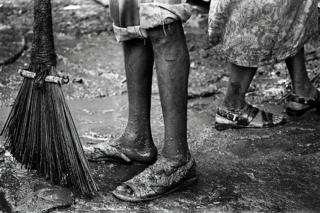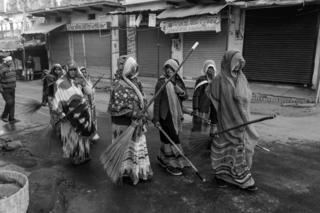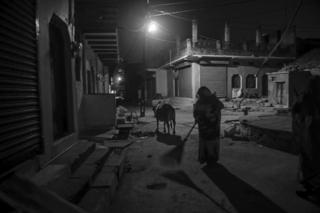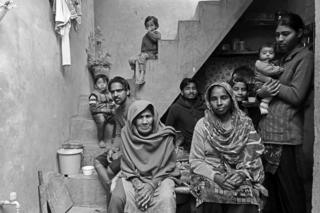- UID
- 20
- Online time
- Hours
- Posts
- Reg time
- 24-8-2017
- Last login
- 1-1-1970
|
|
━━━━━━━━━━━━━━━━━
▼ Sudharak Olwehas been documenting the lives of Mumbai's sanitation workers for about two decades.
The work, often in appalling conditions, is reserved for Scheduled Castes, officially designated groups of historically disadvantaged communities that live on the fringes of society.
And their lives remain substantially unchanged despite India's overall economic, social and technological advancements.
Olwe's most recent photographs, commissioned by WaterAid, are shown as part of UN World Toilet Day 2019.


"Manual scavengers" from the Valmiki community remove excrement by hand from dry latrines in Amanganj, Panna, Madhya Pradesh.

Betibai Valmiki says: "We are not allowed to drink tea in any restaurant here.
"Even if we go to one small tea-shop, we are served in disposable plastic glasses while others are served in regular tumblers."
Most of the women have asthma and malaria - but there is no healthcare and their wages are docked if they call in sick.

Mukeshdevi, 42, pictured with her husband, Sukhraj, mother in-law, five children and two grandchildren, in Bhagwat Pura, Meerut, Uttar Pradesh, earns 2,000 rupees (£20) a month. (▪ ▪ ▪)
► Please, continue reading this article here: Source |
|